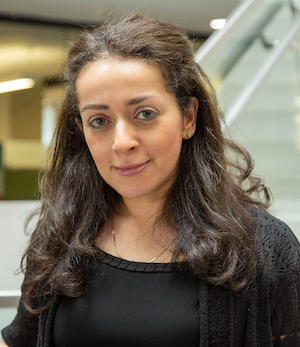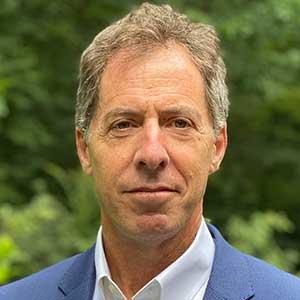In This Story
Coronavirus vaccine demand is declining across the United States, particularly among two groups: Blacks and Republicans, George Mason University research shows.
Results of a recently published survey by a team that includes Mason faculty shows that there is still critical public health work to be done to combat COVID 19.
Amira Albert Roess, professor of global health and epidemiology in Mason’s College of Health and Human Sciences, and Edward Maibach, University Professor and director of Mason’s Center for Climate Change Communication, were part of a team of researchers that studied COVID-19 vaccine hesitancy.
“It is imperative that we work harder to build trust in the vaccine and to reach these groups,” said Roess. “We have a few more months before a pediatric vaccine is available, and we need to prepare parents to accept it.”
COVID vaccines became available last week for children 12 and older, and Roess expects vaccine doses for children 11 and under to be authorized before the start of the fall school year.
“Getting vaccinated is the most important thing people can do to protect themselves, their family members, and everyone else from being harmed by COVID,” said Maibach. “People who are hesitant to be vaccinated should talk to their doctor or their pharmacist for a second opinion.”
The study on vaccine hesitancy among parents, submitted to BMC Public Health and currently in pre-print and under peer review, also found that females and individuals living in less populated areas also had high vaccine hesitancy.
Among the more than 3,700 surveyed, the study revealed that 40% of Blacks, compared to 60% whites, were likely to get the COVID vaccine. Also, 50% of Republicans, compared to 70% Democrats, are likely to get vaccinated.
Results from earlier studies show no difference in other childhood vaccine hesitancy among these groups, Roess explained.
“The historical response from those who refused to get their child vaccinated was nearly equal,” she said, but now it has become a political issue.
Roess said herd immunity in the United States appears increasingly unattainable. The lower the vaccination rate in a population, the higher the vaccine efficacy must be, she added.
“With herd immunity out of reach, active surveillance of unvaccinated populations is critical,” said Roess.
Roess predicts that loosening restrictions across most of the country for summer will lead to more children and unvaccinated adults contracting COVID-19. Those who are unvaccinated will put those who cannot get vaccinated at risk. Although children have a much lower chance of severe infection, hospitalization and death from the disease, their risks are not insignificant, Roess said.
Also, with large pockets of unvaccinated adults throughout the country, the virus may continue to circulate and novel strains will likely emerge in the coming months.
“By fall, we will face the risk of yet another wave unless we do better with vaccination rates,” said Roess.
“Many of us had very high hopes for the Johnson & Johnson vaccine,” Roess added. “A one-and-done vaccine would have meant a much faster race to vaccinate the population.”
Although the risk of blood clots from the Johnson & Johnson vaccine is lower than that from birth control pills, she said the occurrence of side effects from the vaccine will likely lead to further hesitancy.
And if vaccination rates do not improve, Roess said the United States must pivot to a more serious and targeted surveillance system.
“Surveillance must be timely, robust, and must include sequencing.”
For counties and states with vaccination rates of 30% and below, mask-wearing should still be highly encouraged, she added.
Roess admits that those who are vaccinated will have the greatest benefit and protection from severe disease.
Amira Roess studies emerging infectious diseases. She has expertise in infectious diseases epidemiology, multidisciplinary and multispecies field research, and evaluating interventions to reduce the transmission and impact of infectious diseases. She can be reached at aroess@gmu.edu.
Edward Maibach is a University Professor and director of Mason’s Center for Climate Change Communication. For the past decade, his research has focused exclusively on studying public understanding of and engagement in climate change, and developing and evaluating approaches to enhancing public understanding and public engagement. He can be reached at emaibach@gmu.edu.
For more information, contact Jeanene Harris at jharri57@gmu.edu.
About George Mason
George Mason University is Virginia’s largest public research university. Located near Washington, D.C., Mason enrolls 39,000 students from 130 countries and all 50 states. Mason has grown rapidly over the past half-century and is recognized for its innovation and entrepreneurship, remarkable diversity and commitment to accessibility. Learn more at www2.gmu.edu.


